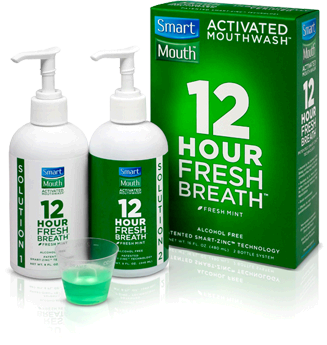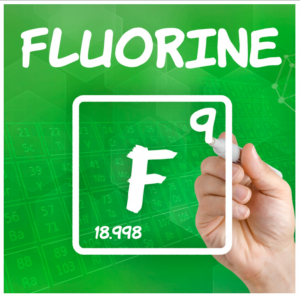How to Choose a Mouthwash
 You try to do everything you can to keep your teeth and gums healthy but what about using a mouthwash? There are so many choices on the market today it can often be confusing. Basically there are three categories most mouthwash falls under.
You try to do everything you can to keep your teeth and gums healthy but what about using a mouthwash? There are so many choices on the market today it can often be confusing. Basically there are three categories most mouthwash falls under.
Fluoride Mouthwash
Generally if you use fluoridated toothpaste, an additional fluoride mouth rinse isn’t necessary. The exception is when you have dry mouth syndrome due to illness or certain medications, have multiple restorations in your mouth, or have a high risk of decay. Severe dry mouth can lead to tooth decay. A proper balance of salvia is required to wash away the harmful acids that bond with dental plaque, eventually causing cavities and gum disease.
Anti-Gingivitis or Plaque Reducing Mouth Rinses
Many dental experts agree this type of mouth rinse needs to become a part of your daily oral health routine. Both anti-plaque and anti-gingivitis dental rinses work to reduce and kill damaging mouth bacteria even the most thorough brusher can miss. Any brand which carries the American Dental Association seal of approval means the claims made by the manufacturer have been verified by an independent scientific testing facility.
Breath Freshening or Whitening Mouth Rinses
We all want sweet smelling breath and movie star white teeth along with good oral health. Just don’t assume these cosmetic mouthwashes will aid in killing the bacteria which contributes to tooth decay and gum disease. Many do kill bacteria but only for a short period of time; definitely not long enough to provide any lasting health benefits. Here at Ellis Dental, we carry Smart Mouth - Advanced Clinical Formula. Using Smart Mouth rinse twice daily will eliminate any bad breath you may have. We stock the 30oz bottles that aren't available in stores and offer them at a discounted price. For more information on Smart Mouth, visit their webiste: www.smartmouth.com
Bottom line; add a fluoride mouth rinse to your daily oral health routine if you don’t use fluoride toothpaste. Rinse daily with an anti-plaque or anti-gingivitis mouthwash and then if you want clean breath and white teeth perhaps use that type of mouthwash in the morning and a plaque fighting mouthwash in the evening.
Searching for a caring dentist in the Crestwood area? Please contact Ellis Dental today to schedule an appointment.
Know the Facts about Fluoride
 Most people aren’t aware that their tooth enamel is constantly changing. On a daily basis important minerals that make up a tooth’s enamel layer are lost through demineralization. Mouth bacteria interacts with certain proteins and sugars causing acid to form and erode the enamel. Then at the same time other minerals such as calcium, phosphate and fluoride are being deposited back on the tooth surface through what we eat and drink. Obviously when there is more demineralization than remineralization, the tooth enamel becomes weak and cavities and tooth decay can occur. Past studies have determined that while fluoride can protect teeth from demineralization, it can also remineralize some of the damaged areas.
Sufficient amounts of fluoride are critical for children beginning at the age of six months. This is when both primary and permanent teeth are developing and fluoride is absorbed into the tooth hidden under the gum. Then after the tooth erupts fluoride acts as a barrier against damaging acids. However, care must be taken against high concentrations of fluoride as this can cause negative effects on tooth enamel. Your dentist can easily gauge the correct amount of fluoride depending on your child’s age and weight.
Most people aren’t aware that their tooth enamel is constantly changing. On a daily basis important minerals that make up a tooth’s enamel layer are lost through demineralization. Mouth bacteria interacts with certain proteins and sugars causing acid to form and erode the enamel. Then at the same time other minerals such as calcium, phosphate and fluoride are being deposited back on the tooth surface through what we eat and drink. Obviously when there is more demineralization than remineralization, the tooth enamel becomes weak and cavities and tooth decay can occur. Past studies have determined that while fluoride can protect teeth from demineralization, it can also remineralize some of the damaged areas.
Sufficient amounts of fluoride are critical for children beginning at the age of six months. This is when both primary and permanent teeth are developing and fluoride is absorbed into the tooth hidden under the gum. Then after the tooth erupts fluoride acts as a barrier against damaging acids. However, care must be taken against high concentrations of fluoride as this can cause negative effects on tooth enamel. Your dentist can easily gauge the correct amount of fluoride depending on your child’s age and weight.
Adults can also benefit from additional fluoride especially if dry mouth is a concern. Often certain medications, diseases or side effects from medical treatments can cause a lack of saliva allowing harmful bacteria to form. Also, if you suffer from gingivitis where more of the tooth is exposed or have crowns, bridges or braces, sufficient fluoride is important. Adding a fluoride rinse to your daily brushing even when using fluoride toothpaste is one of the easiest ways to make sure your teeth are protected.
As always, we here at Ellis Dental welcome your questions and concerns. Please don’t hesitate to reach out if you’d like more information on fluoride and your dental health.
Your Child’s First Dental Visit
 Probably growing up you didn’t visit a dentist until after your permanent teeth were in place. Now studies indicate a child’s first dental visit should be approximately six months after their first tooth erupts. Your child’s primary or “baby” teeth should be in place by the time they are three years old, and have a complete set of permanent teeth by the age of twelve. And no matter if the teeth are primary or permanent; they still need to be properly maintained to avoid tooth decay which can occur at any age.
Also, perhaps as a child you like many of us were afraid to go to the dentist because of all the scary equipment and the potential for pain. By acclimating your child to the dentist from a very early age before fear becomes a factor, they will be more likely to practice good oral health and the stress felt during those bi-yearly visits will be reduced.
Probably growing up you didn’t visit a dentist until after your permanent teeth were in place. Now studies indicate a child’s first dental visit should be approximately six months after their first tooth erupts. Your child’s primary or “baby” teeth should be in place by the time they are three years old, and have a complete set of permanent teeth by the age of twelve. And no matter if the teeth are primary or permanent; they still need to be properly maintained to avoid tooth decay which can occur at any age.
Also, perhaps as a child you like many of us were afraid to go to the dentist because of all the scary equipment and the potential for pain. By acclimating your child to the dentist from a very early age before fear becomes a factor, they will be more likely to practice good oral health and the stress felt during those bi-yearly visits will be reduced.
What to expect:
- Schedule their appointment for early in the day so they won’t be tired and fussy.
- The first visit will consist of a gentle oral exam to check for any problems and if needed, a cleaning and polishing.
- Depending on the age of the child, X-Rays may be warranted.
- Cleaning a toddler’s teeth can be a bit difficult so we’ll demonstrate correct brushing techniques and answer any questions you may have.
- From the age of six months to sixteen, fluoride is very important for a child’s teeth. During this first visit we’ll explain the need for fluoride and suggest ways more can be applied.
Please call Ellis Dental today to schedule your child’s first dental appointment. We can’t wait to meet your little darling!

